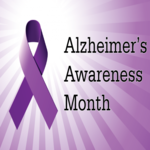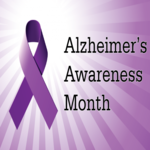
The month of November is dedicated towards the awareness, education, and research of Alzheimer’s Disease. WACO 100 is using this as an opportunity provide tips from the Alzheimer’s Association for families this holiday season.
According to the Alzheimer’s Association, every 65 seconds, someone in the United States develops Alzheimer’s Disease.
Alzheimer’s is a type of dementia that affects memory, thinking and behavior. Symptoms eventually grow severe enough to interfere with daily tasks. Alzheimer’s is the most common cause of dementia, a general term for memory loss and other cognitive abilities serious enough to interfere with daily life. Alzheimer’s disease accounts for 60-80 percent of dementia cases.
Alzheimer’s is not just memory loss. Alzheimer’s kills. It is the sixth leading cause of death in the United States. The Alzheimer’s Association’s most recent report from 2018 for the State of Georgia indicated that there were 4,513 deaths from Alzheimer’s disease, which is a 265.4 percent increase since 2000.
The Alzheimer’s Association reports that more than five million people in the United States are living with Alzheimer’s disease.
The most common early symptom of Alzheimer’s is difficulty remembering newly learned information because Alzheimer’s changes typically begin in the part of the brain that affects learning. As Alzheimer’s advances through the brain it leads to increasingly severe symptoms, including disorientation, mood and behavior changes; deepening confusion about events, time and place; unfounded suspicions about family, friends and professional caregivers; more serious memory loss and behavior changes; and difficulty speaking, swallowing and walking.
As previously reported by WACO 100, the 10 early signs and symptoms of Alzheimer’s Disease include the following:
- Memory loss that disrupts daily life.
- Challenges in planning or solving problems.
- Difficulty completing familiar tasks.
- Confusion with time or place.
- Trouble understanding visual images and spatial relationships.
- New problems with words in speaking or writing.
- Misplacing things and losing the ability to retrace steps.
- Decreased or poor judgment.
- Withdrawal from work or social activities.
- Changes in mood and personality.
If you notice any of these signs or symptoms, don’t ignore them. Schedule an appointment with your doctor.

